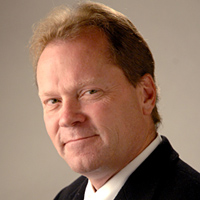If you ever wondered why southeastern Wisconsin hasn't moved forward with development of a functional mass transit system, the answers were clearly apparent at the annual Community Development Summit held Wednesday at the Italian Community Center in Milwaukee.
The summit, presented by the Urban Economic Development Association of Wisconsin, featured a panel discussion that included: Milwaukee Mayor Tom Barrett; philanthropist and business executive Michael Cudahy; Milwaukee County economic development director Bob Dennik; Mequon Mayor Christine Neurenberg; Racine County Executive William McReynolds; Waukesha Mayor Larry Nelson; state Rep. Jeff Stone (R-Greendale); state Sen. Lena Taylor (D-Milwaukee); and Waukesha County Executive Dan Vrakas.
The discussion was moderated by Mike Gousha of WISN-Channel 12 and the Marquette University Law School. Talk about herding cats.
I know most of the panelists personally. Good people all. Fine public servants too. But they cannot agree upon what the top regional transit priorities should be, which transit modes are most needed and just as important, how to fund them.
Barrett and Milwaukee County Executive Scott Walker are at a standoff about how to spend $91.5 million in federal transit funds that were allocated for the region 17 years ago. Before those dollars can be spent, the mayor, the county executive and the governor all most agree upon how to use the money.
Barrett wants modern streetcars to link to local attractions and express buses to connect workers to jobs through a hub at Milwaukee's new Downtown Transit Center. Walker calls that idea a "Trojan horse" for light rail and instead wants to ramp up the county's bus system.
Until they agree, those dollars will just sit in Washington, and their potential impact will continue to dwindle (Remember, $91.5 million bought a lot more 17 years ago than it does today.)
Barrett extended an olive branch of sorts Wednesday, saying, "I'm prepared to split that money with the county right now, and let's move forward."
Dennik, representing Walker, was not impressed.
Cudahy, who has studied transit systems throughout Europe and in American cities such as Portland, Ore., said the plans of both Barrett and Walker fall short of what is needed in Milwaukee.
"What has to be done is a new and a bold transportation scheme," Cudahy said.
Cudahy is proposing a public / private partnership to form a regional transit authority with the power to impose a sales tax to help fund an integrated transit system that would include buses, streetcars and the KRM (Kenosha-Racine-Milwaukee) rail line.
To people who say such a system should be self-supporting, Cudahy notes that successful mass transit systems in other cities are not self-supporting. Heck, even our highway system isn't self-supporting. We don't have toll booths in Wisconsin.
Barrett says his plan is a "Goldilocks" idea, which Cudahy says is too small and Walker says is too big. Barrett says his plan is "just right" to at least move the region forward.
But McReynolds said any regional plan that calls for a sales tax increase is dead upon arrival in Racine.
"If you say 'sales tax' in Racine County, it's going nowhere," McReynolds said.
Nelson said the geographic boundary lines in the political discourse of the mass transit issue in the region are "foolish and outdated." Taylor and Stone agreed.
Still, Stone acknowledged, "I don't think Waukesha County trusts Milwaukee County."
Vrakas didn't disagree.
Amid the partisan and geographical posturing, there are occasional signs of political courage and even independence.
Taylor praised Stone for being the only Republican on the Joint Finance Committee to vote Tuesday against a provision that would have prevented the state from spending $100,000 to study the KRM line unless a funding mechanism was first approved by the legislature and the governor.
Stone is the Assembly's transportation expert. For his bipartisan gesture on Tuesday, Stone will no doubt receive grief from the local conservative radio talk show cabal. Neurenberg blamed the media and talk show hosts Mark Belling and Charlie Sykes for dividing the community on such important issues.
Nelson, meanwhile, said he would support a KRM line, because he believes it will be beneficial for the entire region, including Waukesha.
Cudahy, the richest guy in the room, predicted that gasoline could soon rise to $6 per gallon and even $10. If local political leaders do not overcome their differences, Milwaukee will soon become the only major American metropolitan region without a mass transit system, and the region will be at a stark competitive disadvantage economically and socially, Cudahy said.
Several key civic and business leaders throughout the region are stepping forward to support the KRM, including the Greater Milwaukee Committee, the Metropolitan Milwaukee Association of Commerce, the Spirit of Milwaukee, the Greater Milwaukee Association of Realtors and the Racine Area Manufacturers & Commerce (see the complete list key supporters at www.transitnow.org/key-endorser-list.html). The business leaders often cite the need for a mobile workforce and to connect with Chicago as reasons to move forward with the KRM.
Steve Jagler is executive editor of BizTimes in Milwaukee and is past president of the Milwaukee Press Club. BizTimes provides news and operational insight for the owners and managers of privately held companies throughout southeastern Wisconsin.
Steve has won several journalism awards as a reporter, a columnist and an editor. He is a graduate of the University of Wisconsin-Milwaukee.
When he is not pursuing the news, Steve enjoys spending time with his wife, Kristi, and their two sons, Justin and James. Steve can be reached at steve.jagler@biztimes.com.




